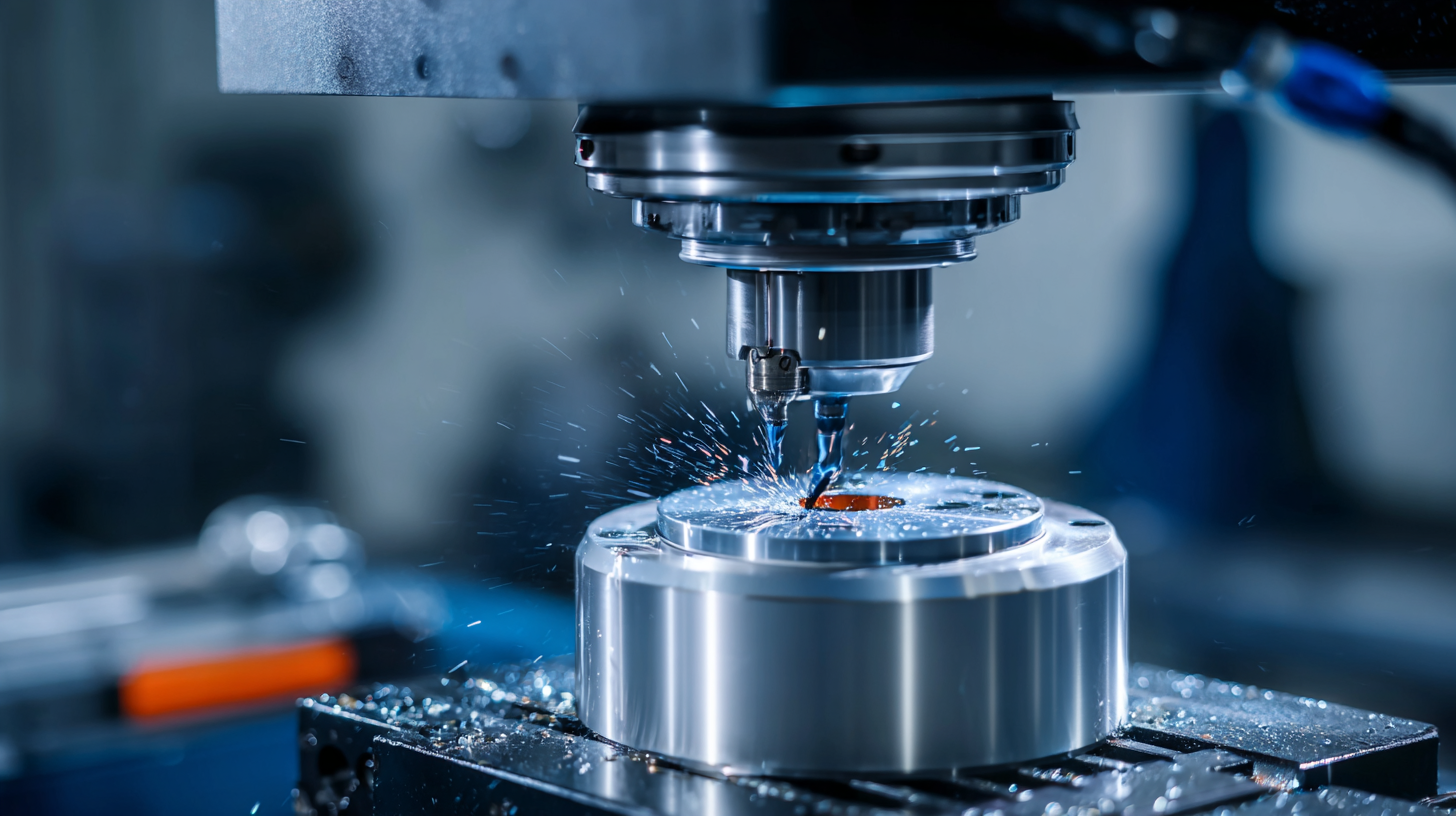
-
Home
-
Products
-
Application
-
Documents
-
News
-
Blog
-
Blog
-
Sinsegye
Leave Your Message
-
Wechat OA

-
 Baijia Hao
Baijia Hao



 Baijia Hao
Baijia Hao

In the rapidly evolving landscape of automation, understanding the emerging trends that will define 2025 is essential for industry professionals and businesses alike. One critical component leading this transformation is the Delta Servo Motor, renowned for its efficiency, precision, and adaptive capabilities. As industries demand higher production standards and seek to enhance operational efficiency, the Delta Servo Motor stands out as a game-changer in automation technology. This article delves into the significant advancements in Delta Servo Motors, exploring their impact on automation processes, productivity, and the potential for reshaping manufacturing standards. Furthermore, we will provide insights on how to effectively integrate these motors into existing systems, ensuring that businesses remain competitive in an increasingly automated future.

The rapid evolution of automation technology has positioned Delta Servo Motors at the forefront of this transformation. These advanced motors are distinguished by their precision, energy efficiency, and compact design, making them ideal for a wide range of applications in manufacturing and robotics. One of the key features driving the rise of Delta Servo Motors is their ability to provide real-time feedback and control, enabling manufacturers to optimize their processes with remarkable accuracy. This responsiveness not only enhances productivity but also reduces waste, making production lines smarter and more sustainable.

Another significant aspect contributing to the growing popularity of Delta Servo Motors is their compatibility with Industry 4.0 initiatives. As factories become increasingly interconnected, the importance of seamless communication between devices and systems cannot be overstated. Delta Servo Motors are engineered to interface effortlessly with various automation platforms, allowing for easy integration into existing workflows. This flexibility empowers businesses to adapt to changing market demands and maintain a competitive edge, heralding a new era of intelligent automation that is both efficient and highly adaptive.
Delta Servo Motors are revolutionizing the automation landscape, integrating cutting-edge technology that enhances precision and efficiency in various industries. At the core of this advancement is the advanced control technology that allows for real-time feedback and adjustments, ensuring optimal performance even under variable conditions. These motors utilize high-resolution encoders, enabling accurate position and speed control, which is crucial for applications ranging from robotics to CNC machinery.

Moreover, the compact design and energy-efficient operation of Delta Servo Motors contribute significantly to reducing operational costs while increasing productivity. Features such as built-in safety mechanisms and easy integration with existing systems make them a preferred choice for manufacturers looking to upgrade their automation solutions. As industries continue to embrace automation, understanding the technology behind Delta Servo Motors and their impact on operational efficiency will be essential for businesses aiming to stay competitive in the evolving market landscape.
The automation landscape is undergoing significant changes as we approach 2025, particularly with the surge in demand for high-performance servo motors. As highlighted by market research, the Asia Pacific servo drive market is projected to reach approximately USD 3.89 billion by 2033, with China leading this remarkable growth trajectory. This trend showcases the pivotal role that advanced servo motors play in improving efficiency and precision in a variety of applications, ranging from robotics to manufacturing processes.
Furthermore, the medium voltage drives market has surpassed USD 1.9 billion in 2024 and is anticipated to grow at a CAGR of over 6.5% from 2025 to 2034. The increasing push for automation in industrial settings underscores the need for reliable and efficient servo solutions. These motors not only enhance productivity but also lower operational costs, making them indispensable in today’s competitive environment.
Tips: When selecting a servo motor for your applications, consider the power range requirements—whether it's under 1MW or above 7MW—as this can significantly impact performance and energy efficiency. Additionally, keep an eye on emerging technologies that can complement servo systems, such as AI and IoT, to maximize automation capabilities. Investing in high-quality servo motors today will position your business to thrive in the increasingly automated future.
| Trend | Impact on Automation | Market Growth (%) | Key Technologies | Expected Innovations |
|---|---|---|---|---|
| Advanced Motor Control | Increases precision and energy efficiency | 15% | AI, IoT integration | Self-optimizing control systems |
| Energy Efficiency | Reduces operational costs for industries | 20% | High-efficiency drives | Eco-friendly motor designs |
| Modular Designs | Enhances flexibility in manufacturing | 10% | Plug-and-play components | Customization options for end-users |
| Predictive Maintenance | Minimizes downtime through alerts | 18% | Machine learning algorithms | Real-time health monitoring |
| Smart Integration | Enables seamless communication between devices | 22% | Wireless communication protocols | Interoperable systems for automation |
Delta servo motors are increasingly integrated into various industries, revolutionizing automation processes thanks to their unmatched precision and high performance. A recent market analysis indicates that the global servo motor market is expected to reach $11.51 billion by 2025, growing significantly with the demand for automation in manufacturing, robotics, and packaging industries. These motors excel in applications requiring rapid acceleration and constant torque, making them ideal for tasks in CNC machinery, 3D printing, and assembly lines.
One of the standout features of Delta servo motors is their adaptability across different sectors. In the food and beverage industry, for example, they enhance bottling processes and meet stringent hygiene requirements while maintaining efficiency. The automotive sector leverages these motors for high-speed assembly and quality control, which significantly reduces production times. According to a report from MarketsandMarkets, industries adopting smart manufacturing technologies, including robotics and servo motors, could see productivity improvements of up to 30%.
**Tip:** When selecting a servo motor for specific applications, consider factors such as load requirements, space constraints, and operational speed to ensure optimal performance. Additionally, integrating servo motors with IoT devices can further enhance efficiency and provide real-time data analytics, paving the way for smarter manufacturing solutions.
This chart illustrates the projected applications of Delta Servo Motors across various industries in 2025, indicating their significant impact on automation and efficiency.
In 2025, the landscape of automation is being reshaped by significant advancements in Delta servo motor technology. The unveiling of new robotics solutions and fast EV chargers at recent trade exhibitions signals a commitment to innovation that not only enhances industrial automation but also caters to evolving market needs such as electric vehicle infrastructure. As we look toward the future, advancements like the MOOVbase Multi-port Charging System exemplify how Delta is integrating its technology to streamline operations in smart warehouses.
To maximize the potential of Delta servo motors, businesses should focus on adopting automation solutions that emphasize energy efficiency and ease of integration. Utilizing advanced features like AI-driven digital twins can optimize manufacturing processes, leading to smarter production lines. Understanding the synergy between robotics and servo motors can also improve operational effectiveness, enabling real-time adjustments and increased productivity.
As China emerges as a key innovator in advanced industries, companies must stay vigilant about global trends. They should consider partnerships that enhance their technological capabilities and drive innovation, which is crucial in a rapidly evolving market. Leveraging collaborations can provide insights into the latest breakthroughs and prepare businesses for the upcoming challenges of automation.